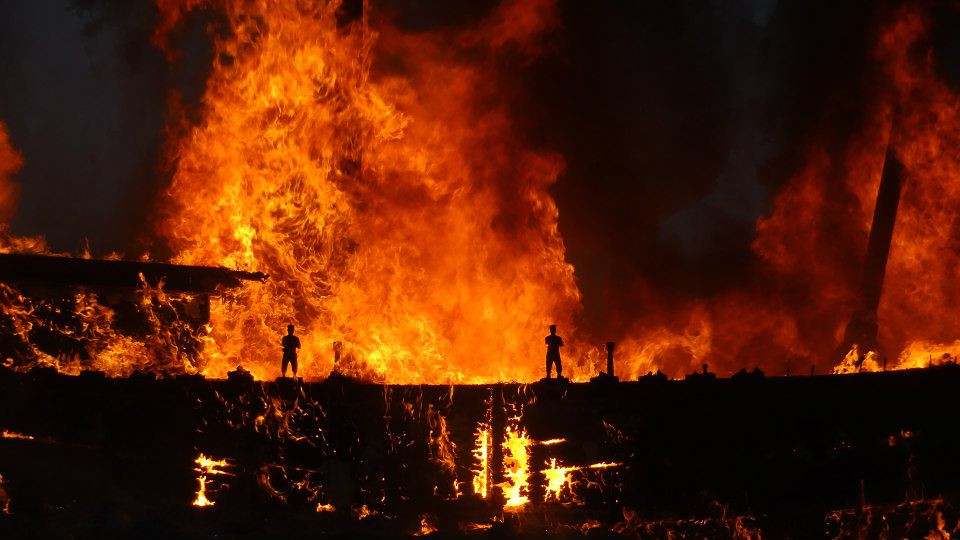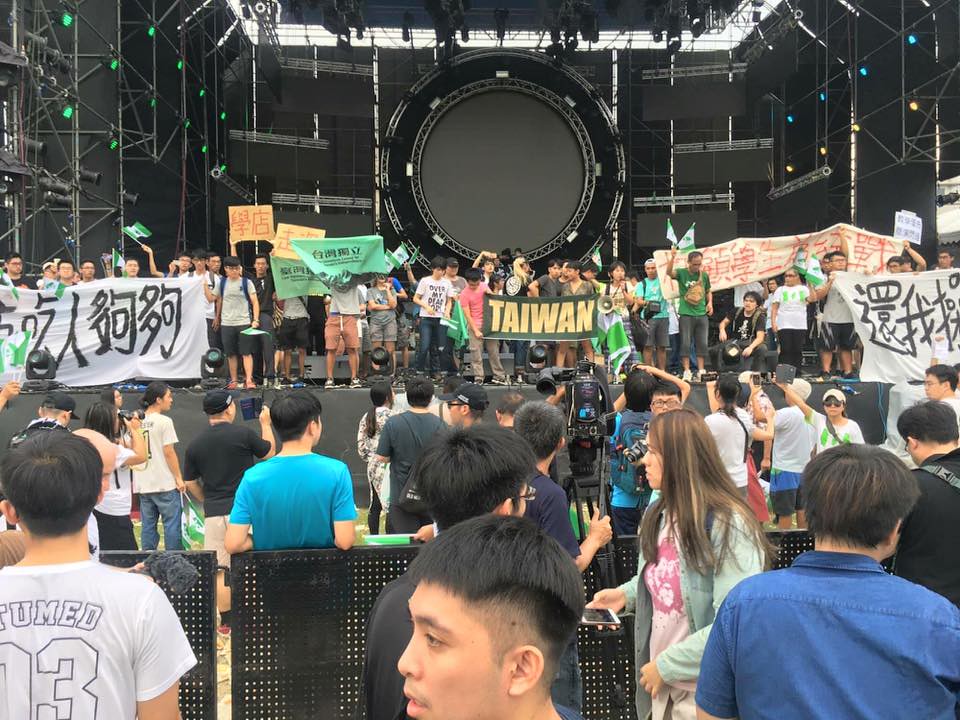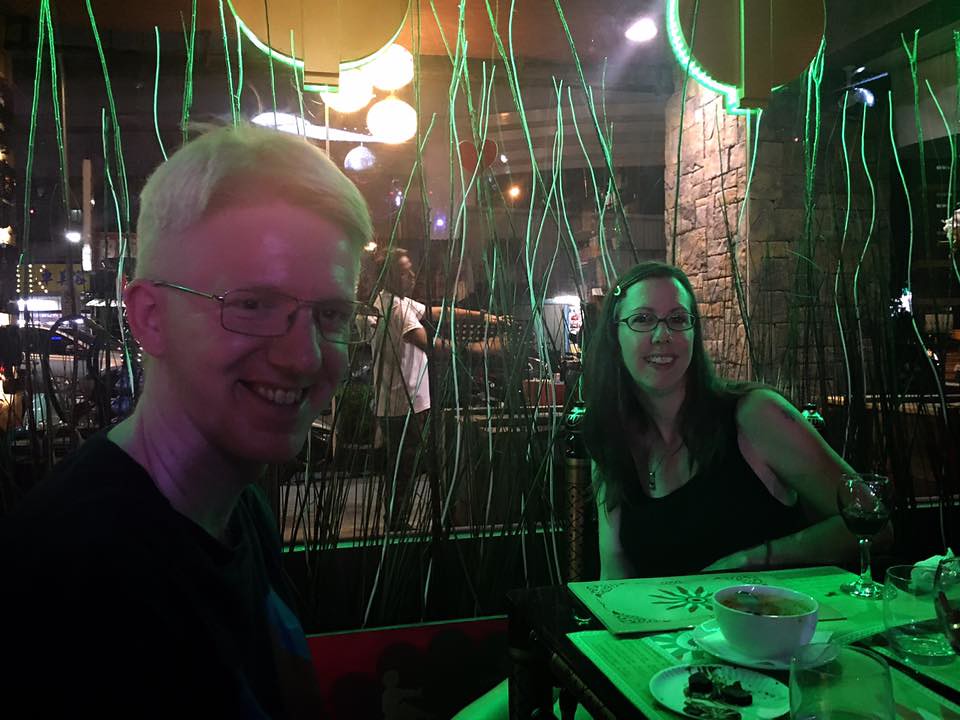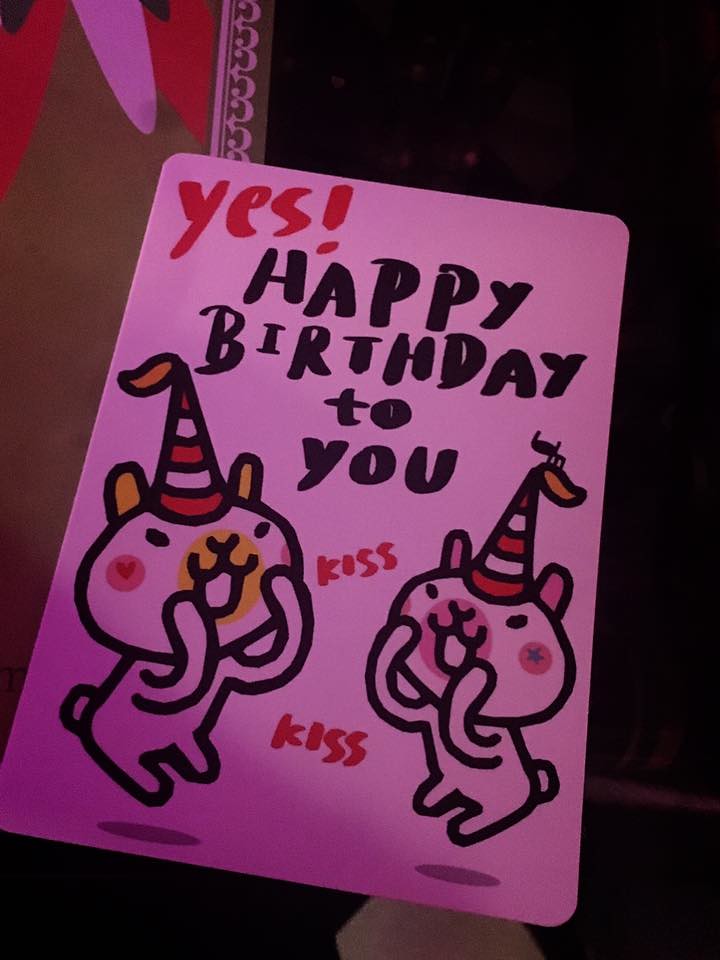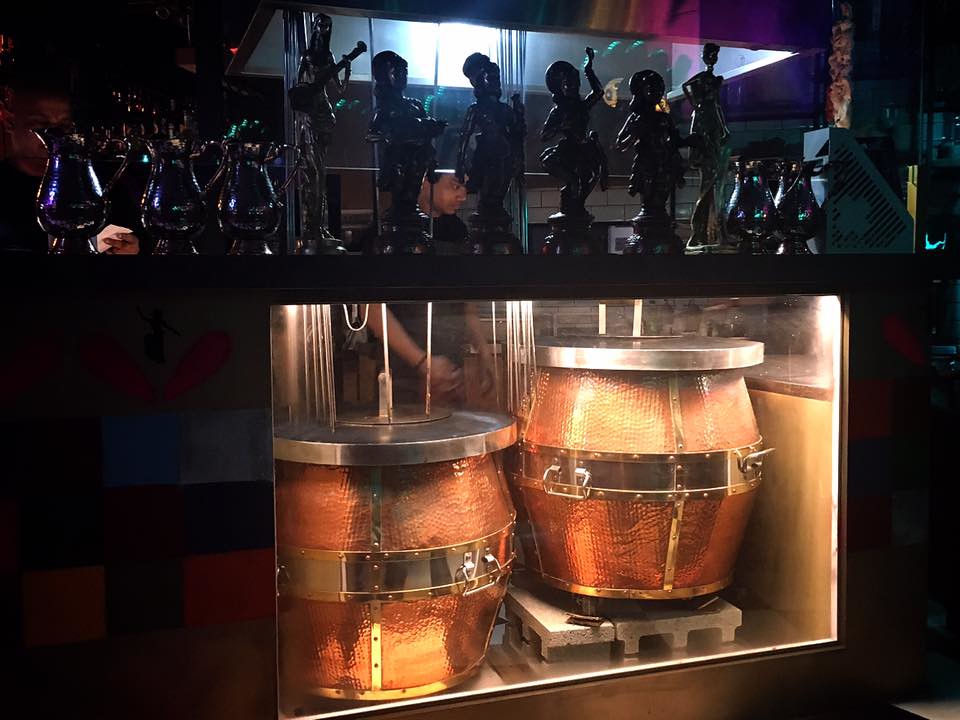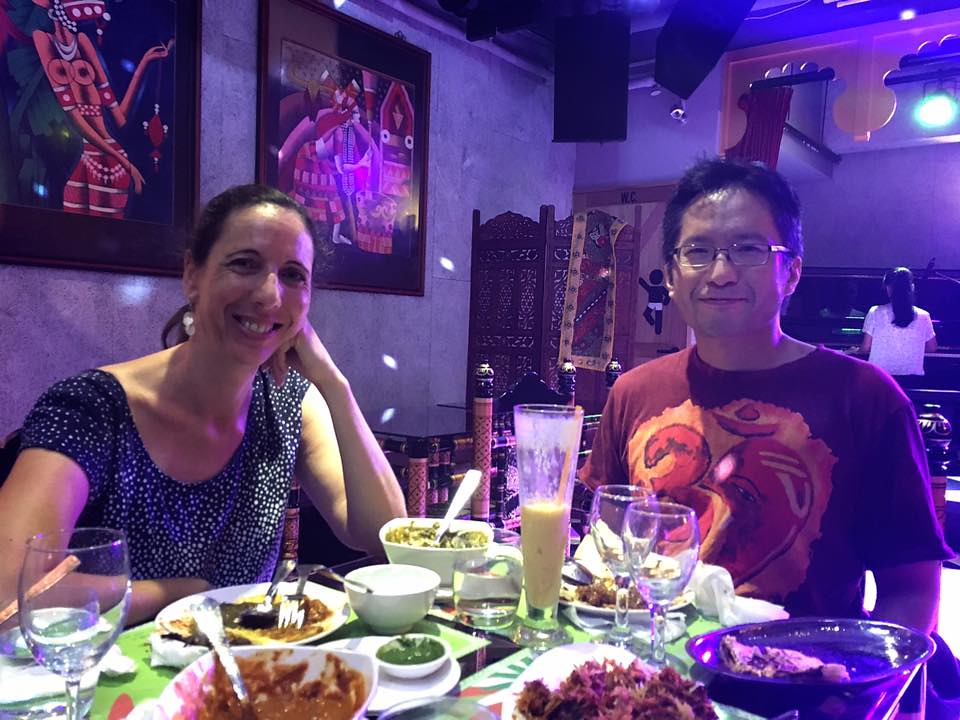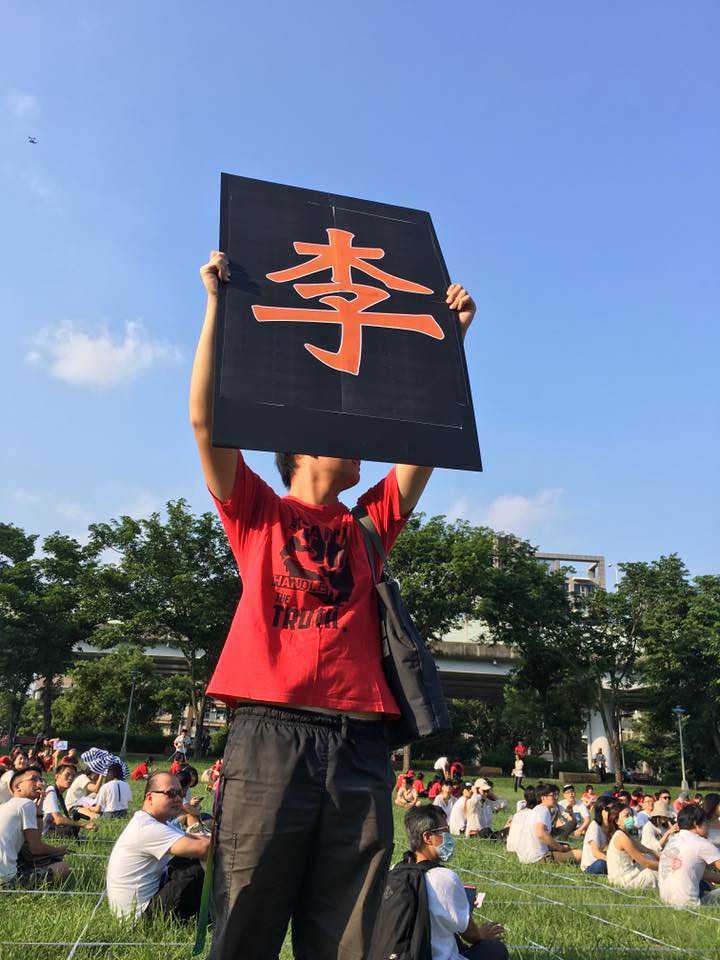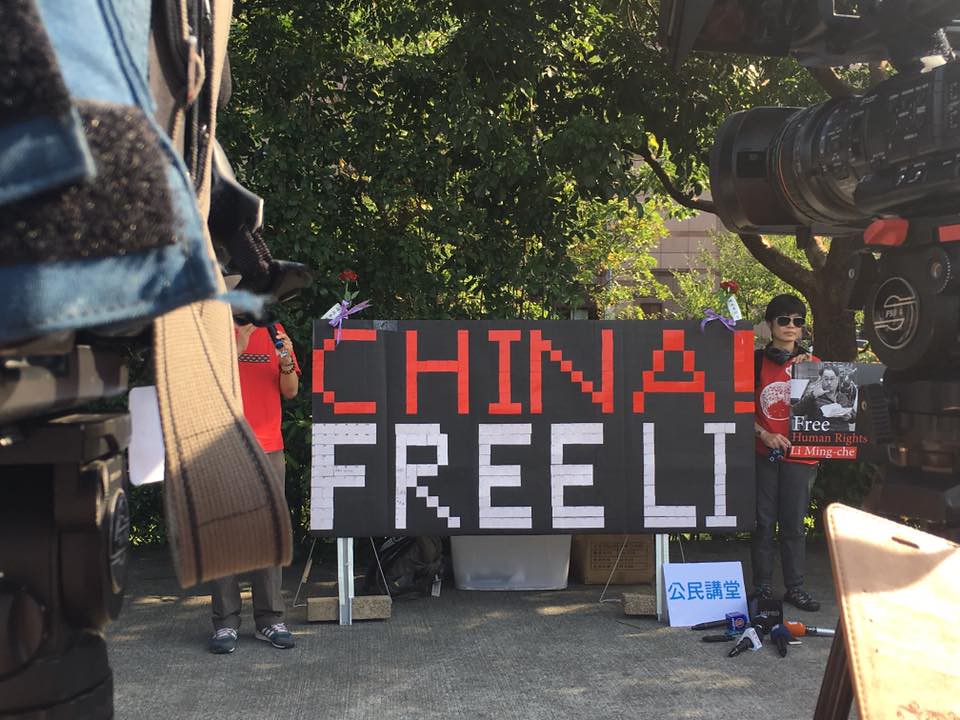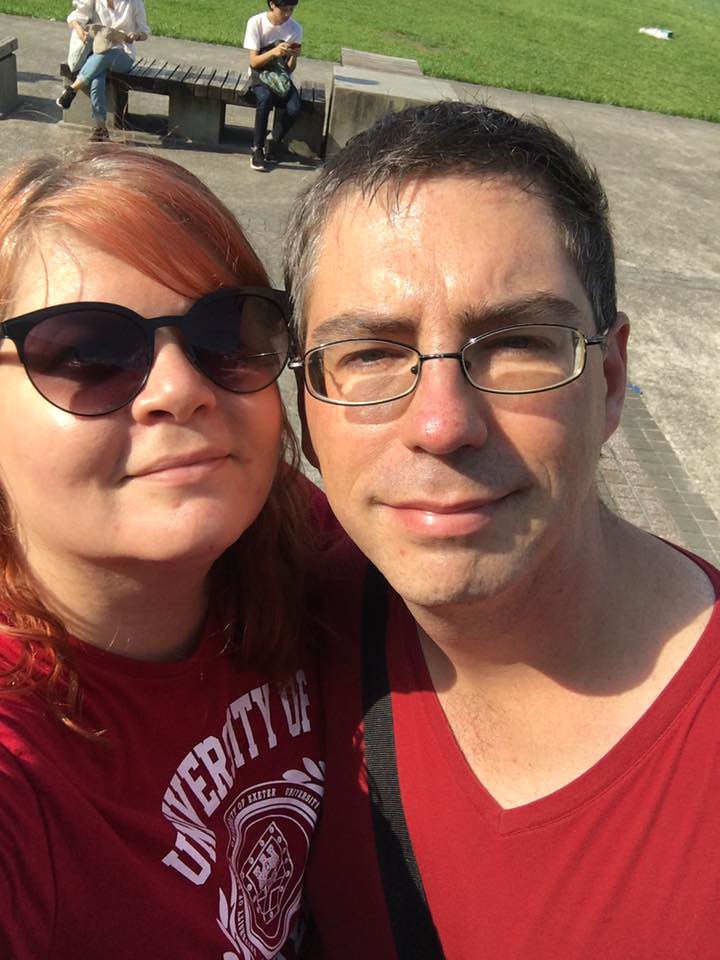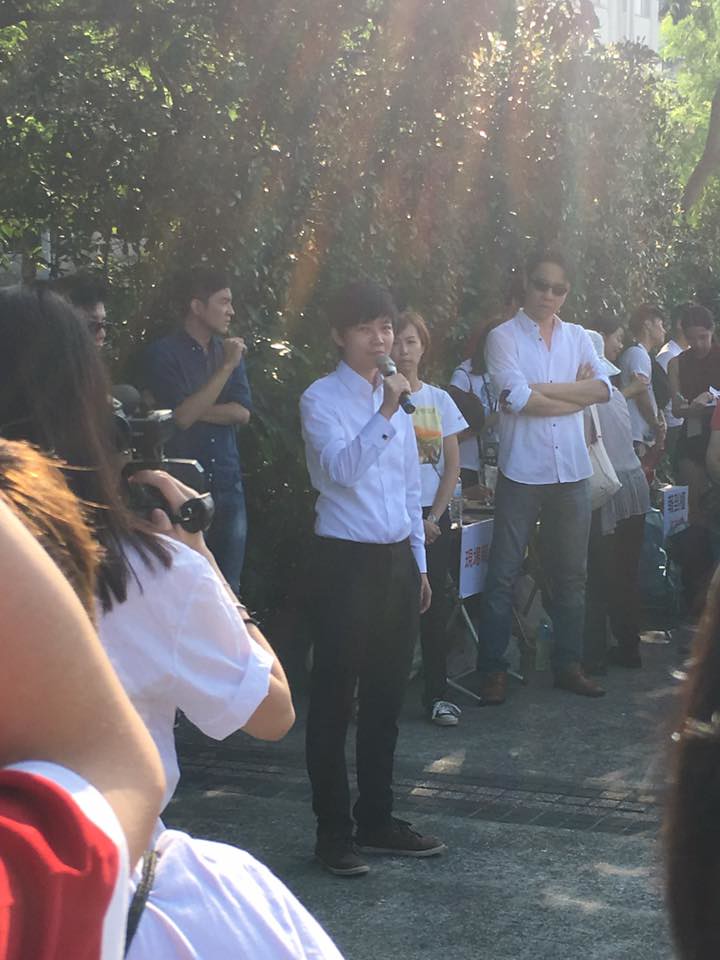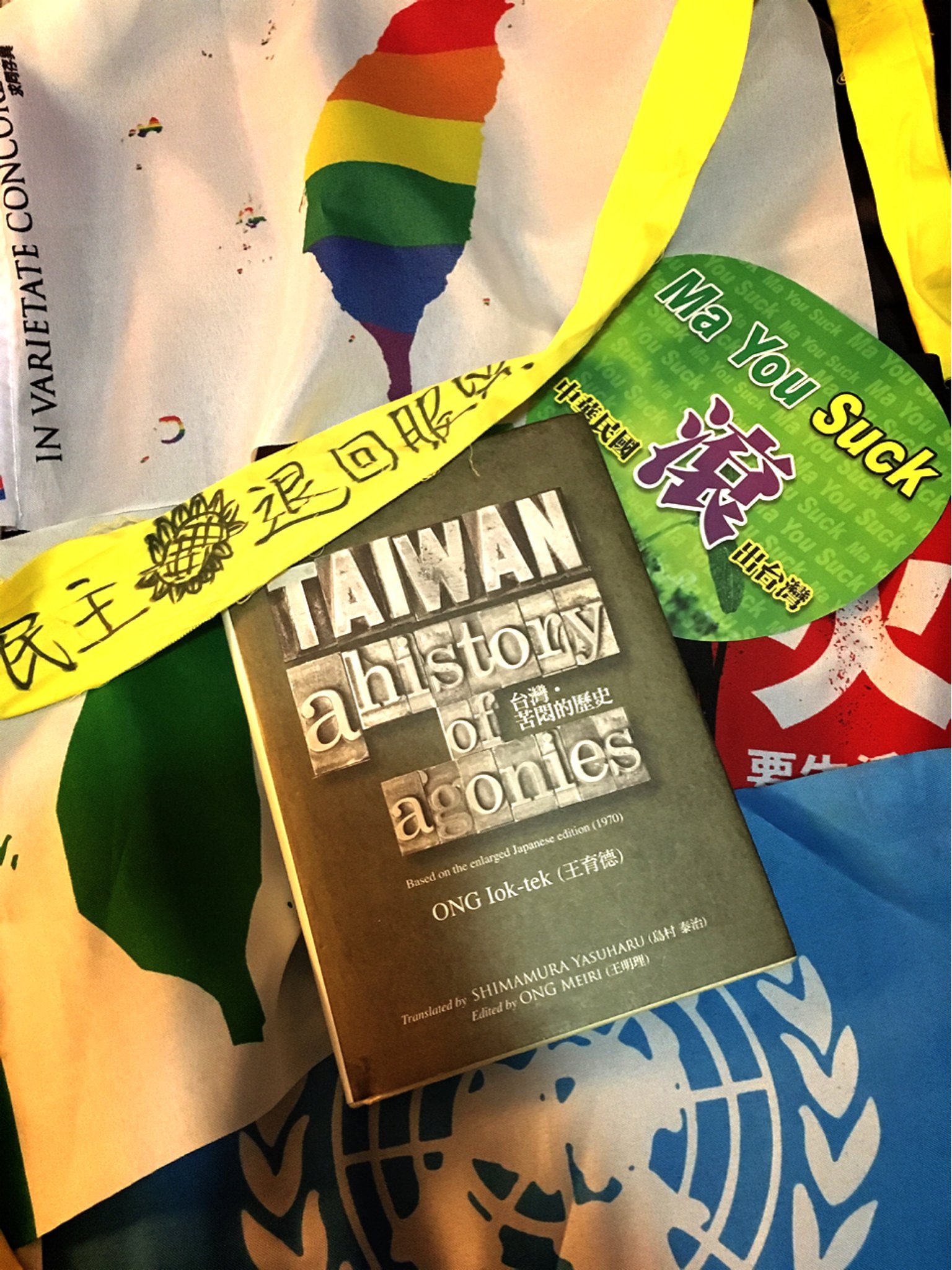 |
| A History of Agonies alongside symbols of some Taiwanese social movements I have been here to witness and participate in. It all ties together. |
Anyone who truly loves reading has become so emotionally engaged with a book that it makes them cry, often at the most inconvenient times. It stays with them and affects how they feel, think and interact with the world for some time after the reader has finished with it. Occasionally, this effect is permanent.
This happened with Green Island, a book I highly recommend to everyone and which made me Ugly Cry in my favorite coffee shop, and would say is essential reading for anyone wanting to understand 20th century Taiwan. I expected it would happen with Taiwan: A History of Agonies as well - I mean, the agony is right there in the title. Taiwanese history certainly contains enough tragedy to make anyone with a heart sob for hours.
So, I was surprised when that ended up not being the case.
Please don't misunderstand - it's not that it left me cold, or I found it uninteresting. I certainly had an emotional reaction to reading the words of a Taiwanese person describing what to him was not always "history": Ong Iok-tek lived through much of the events of the later chapters of the book. I was also intellectually engaged in reading history from a decidedly Taiwanese Hoklo nationalist perspective, especially in a book written in the mid-to-late 20th century. A lot has changed vis-a-vis Taiwanese identity since then, and comparing the two was an illuminating exercise.
I will say that I learned quite a bit. Ong was especially interested in providing as much detail as possible about the various rebellions during the Qing and Japanese eras, because they proved his point that the Taiwanese never took being colonized lying down. I learned a few interesting details about the Zheng era, and quite a few famous names from history whose contributions I hadn't been clear on were discussed. Ong also spends a fair amount of time on every home-rule movement of note, which makes this a good source of knowledge for anyone hoping to refute the ridiculous yet oddly common notion that "Taiwanese identity" did not exist before the 1970s.
It was also interesting to read from that mid-century nationalist perspective. I'm aware of its existence and the general worldview of that generation of pro-Taiwan activists, as well as the generation after them which pushed through to democratization. I am aware of some of the problematic beliefs they often held, from thinking indigenous people were inferior to believing that nobody who came over from China in the 1940s could ever really be Taiwanese (and extending to views on women and homosexuality as well, although these aren't issues that come to the fore in this book - the only thing I remember being striking in that regard was Ong's reference to the "men" who fought and died for Taiwan.) It was quite another thing, however, to read from that perspective in the words of someone who was one of them.
It's not that Ong said much in this vein that I found new or surprising - for example, along with his focus on rebellions and home-rule movements above, he was dismissive of indigenous (mentioned above and to be mentioned again), focused almost exclusively on male luminaries (with a few exceptions), was critical of the Qing but not so much of the Japanese, and wrote from a clearly - but I think entirely deserved - anti-KMT perspective. I don't recall Taiwanese Hakka being mentioned at all - if they were, it was too brief a reference for me to catch.
I was surprised, however, at his criticism of the 1895 republic, a blip in history that is interesting to me for no particular reason - I think it may be because I just like the flag. It's not that I think the Republic of Formosa deserves effusive praise, but I would have expected a Hoklo nationalist to give it just that. I recall reading that there was a concerted effort to bring back the symbols of that time - particularly the tiger flag - as symbols of the Taiwanese independence movement later. But, instead, he said that the republic's foundation day declaration "lacks style and refinement for a declaration of independence", was pointedly critical of their kowtowing to the Qing emperor, and of the scrambling of many of its leaders to evacuate to China when the whole thing fell apart later that year.
I did enjoy comparing Ong's views to the views of the young "naturally independent" pro-Taiwan generation of today. They have people like him to thank for giving them shoulders to stand on, and they are aware that they are connected to the luminaries of the pro-Taiwan social movements of history, but it is clear they'd find a lot to criticize in his words, especially in his love for Japan and derision of indigenous people.
It was also interesting to read from that mid-century nationalist perspective. I'm aware of its existence and the general worldview of that generation of pro-Taiwan activists, as well as the generation after them which pushed through to democratization. I am aware of some of the problematic beliefs they often held, from thinking indigenous people were inferior to believing that nobody who came over from China in the 1940s could ever really be Taiwanese (and extending to views on women and homosexuality as well, although these aren't issues that come to the fore in this book - the only thing I remember being striking in that regard was Ong's reference to the "men" who fought and died for Taiwan.) It was quite another thing, however, to read from that perspective in the words of someone who was one of them.
It's not that Ong said much in this vein that I found new or surprising - for example, along with his focus on rebellions and home-rule movements above, he was dismissive of indigenous (mentioned above and to be mentioned again), focused almost exclusively on male luminaries (with a few exceptions), was critical of the Qing but not so much of the Japanese, and wrote from a clearly - but I think entirely deserved - anti-KMT perspective. I don't recall Taiwanese Hakka being mentioned at all - if they were, it was too brief a reference for me to catch.
I was surprised, however, at his criticism of the 1895 republic, a blip in history that is interesting to me for no particular reason - I think it may be because I just like the flag. It's not that I think the Republic of Formosa deserves effusive praise, but I would have expected a Hoklo nationalist to give it just that. I recall reading that there was a concerted effort to bring back the symbols of that time - particularly the tiger flag - as symbols of the Taiwanese independence movement later. But, instead, he said that the republic's foundation day declaration "lacks style and refinement for a declaration of independence", was pointedly critical of their kowtowing to the Qing emperor, and of the scrambling of many of its leaders to evacuate to China when the whole thing fell apart later that year.
I did enjoy comparing Ong's views to the views of the young "naturally independent" pro-Taiwan generation of today. They have people like him to thank for giving them shoulders to stand on, and they are aware that they are connected to the luminaries of the pro-Taiwan social movements of history, but it is clear they'd find a lot to criticize in his words, especially in his love for Japan and derision of indigenous people.
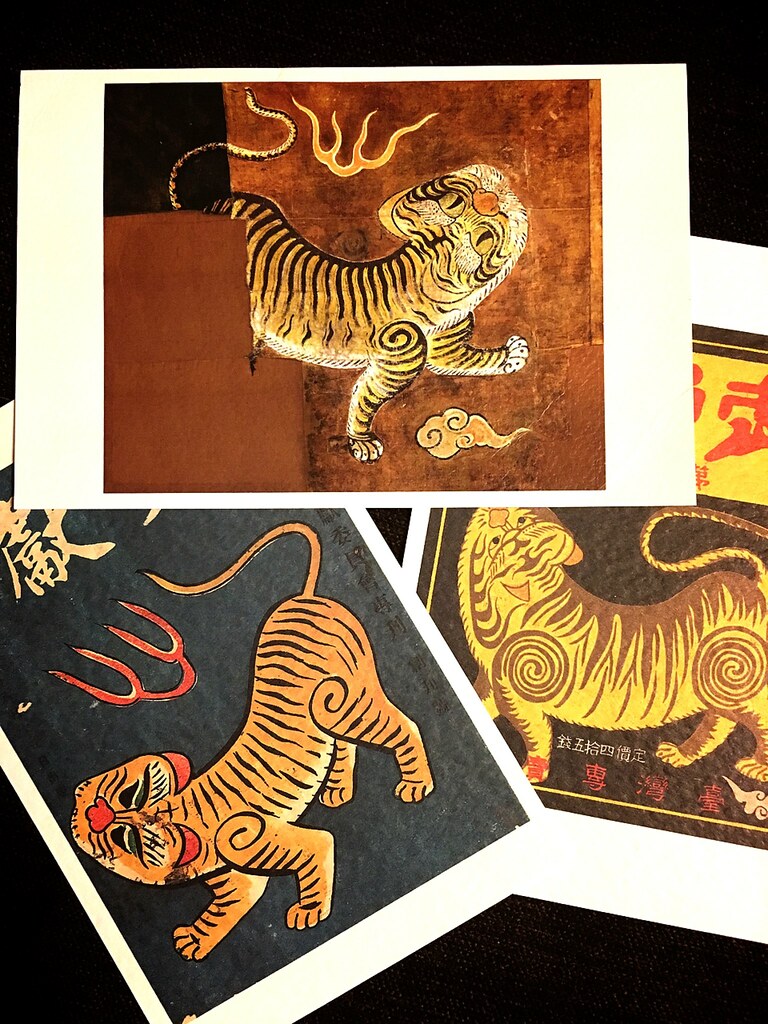 |
| I really love this tiger flag, it's the best flag |
And, finally, I have to admit that this is the first comprehensive history of Taiwan book I've ever read. I've devoured others such as Taiwan's Imagined Geography and Accidental State, but they focus on certain periods. Reading one author bringing it all together was a positive experience.
I didn't cry, however. There is no single reason why. In some places, the writing was a little wooden, which I blame on the translation (I got the distinct feeling that it flowed better in Chinese). How does one start sobbing at lines like this?
Thus, China's relationship with the Kuomintang transfigured itself from a hostile contradiction to a non-hostile contradiction.
Areas where Ong editorialized, even when I agreed, didn't make me stand up and cheer as I thought they might - perhaps because I like my history as un-editorialized as possible. "We Taiwanese are seeking the helping hands from the free camp to rid ourselves of the oppressive rule of the Kuomintang" and similar wording, while I agree with it as an accurate sentiment stemming from the state of affairs when this book was written in the 1970s and to some extent of more modern eras as well, doesn't do anything for the nerdy historian in me. It would have been more powerful to simply present history as it was and let it make the oppression of the KMT very clear.
It could be that the translation was clearly not copyedited by a native-like user of English, as small grammatical mistakes, as well as issues with register and collocation, abounded. A personal favorite:
"The Tai-kang fallen, the fortress was totally isolated. Cheng Ch'eng-kung summoned the Dutch to surrender:
'My Dad opened up this island, Taiwan. Now that I need it, kindly get out!'
That was rather an odd message."
Gee, ya think?
And, the all-time most amazing phrasing in the world:
"Everything began when the Cairo Declaration made Taiwan a booty for the Kuomintang to claim."
"Everything began when the Cairo Declaration made Taiwan a booty for the Kuomintang to claim."
That sort of thing tends to jolt one's mind out of the narrative and back into the real world.
My lack of emotional outburst might also have been because, although I have sympathy for any person who lived through that period of history in Taiwan, I lost some sympathy for Ong after his derogatory marks about indigenous people (which the editors acknowledged in a preface, but ultimately left in the work so as to preserve it as authentically as possible). To wit:
"When the Taiwanese say that Taiwan belongs to the Taiwanese, some Chinese quibble that Taiwan belongs to the indigenous people and they alone have the right to their land. Behind this line of argument by the Chinese are seen glimpses of their scheming design to label the Taiwanese "aggressors" and shamelessly enjoy their share of the spoils..."
"When the Taiwanese say that Taiwan belongs to the Taiwanese, some Chinese quibble that Taiwan belongs to the indigenous people and they alone have the right to their land. Behind this line of argument by the Chinese are seen glimpses of their scheming design to label the Taiwanese "aggressors" and shamelessly enjoy their share of the spoils..."
Yo, Ong, I know you're dead and Imma let you finish, but...I think this, or at least I think the country belongs to the "Taiwanese" who are of all different backgrounds including indigenous, and indigenous people have earned certain rights and reparations due to the historical wrongs done to them. And I absolutely detest the Chinese government and see Taiwan as fully independent.
Also, insisting that Taiwan's history is a Hoklo history rather than an indigenous one into which others later entered is actually closer to China's current rhetoric that you are "all Chinese".
Also, insisting that Taiwan's history is a Hoklo history rather than an indigenous one into which others later entered is actually closer to China's current rhetoric that you are "all Chinese".
"The indigenes in Taiwan made their living mainly by fishing and hunting and occasionally engaged in farming, though of a rather primitive style." (Ong goes on to quote Georgius Candidius' super racist take on indigenous people, calling the women "complete drudges" and the men "idle by nature").
So, no mention of the complex trade networks that the indigenous took part in? No mention that women often enjoyed higher status in indigenous societies? None of that? Just drudges and idlers?
And worst of all - it makes me want to puke in my mouth a little bit even typing this out:
Those of us who are used to the scenes of American Indians shot and killed in Western movies are liable to wrongly assume that primitive (ed: UGH) aborigines are doomed to fall in number at gunpoint. In reality, however, massacre is not necessarily the main cause of population decline (ed: yes, it was, along with other forms of overt oppression) A decadent sex life may be one of the causes; unsanitary lifestyle another (ed: **** you). Unpreparedness against hunger and contagious diseases also triggered population decline (ed: hunger and contagious diseases wrought by the way in which indigenous were treated by every colonial wave to enter Taiwan, perhaps?
In short, I have nothing good to say about Ong's view of indigenous people, and it was certainly a big part of what hardened me to the rest of the book a bit.
It is telling that he begins the book not with a brief recap of what we know of indigenous life before colonization, but with the Chinese knowledge of the island and then, the Dutch.
The editors included an explanatory note to essentially apologize for this, and I understand keeping it for reasons of portraying Ong's voice historically accurately, but...this is not the sort of book that is going to deliver an emotional gut-punch, with nonsense like that.
Finally, I found A History of Agonies hard to follow, because names popped up and disappeared regularly, sometimes with scant biographical info, other times just dropped into the narrative. I did not necessarily know who every person was (although to my credit, I had heard of quite a few). It was also difficult to figure out what Ong was talking about sometimes: he spent quite a bit of time talking about the "Ch'ao-chou", "Chu'an-chou" and "Chang-chou" "gangs", and it took me some time to realize that he was talking about people who themselves or whose ancestors had immigrated to Taiwan from Quanzhou or Chaozhou in Fujian (he also mentions "Chang-chou" (Zhangzhou). Perhaps he needn't have used Pinyin, I know that system has its detractors, but the Wade-Giles - as it usually does - makes it difficult for me to figure out how to pronounce certain things and makes a lot of words, to be honest, all look kind of the same. I know my opinion is not universally accepted, but we can all agree that including characters after any words rendered in Chinese or Taiwanese would have been a good, and helpful, idea.
Of course, I knew this because I know a fair bit about Taiwan. Can you imagine how someone reading this as a beginning text on Taiwanese history would even begin to decipher what Ong meant by the "Ch'ao-chou and Chu'an-chou gangs"? Such a reader might think these are gang names rather than the cities of origin of rival groups of Taiwanese immigrants.
This really cemented my overall impression of the book: this is not something to read as a primer or basic history of Taiwan. There must be better options - it will be confusing for neophytes, and overly simplistic for those with background knowledge.
Instead, I would say, by all means read this book, but do so knowing what you're getting into. Read it as a personal perspective, as a specific take on the events of Taiwanese history from the point of view of a certain kind of Taiwanese nationalist of a certain era. In that sense, it is illuminating, but a clear and readable history, I am sorry to say, it is not.
Finally, I found A History of Agonies hard to follow, because names popped up and disappeared regularly, sometimes with scant biographical info, other times just dropped into the narrative. I did not necessarily know who every person was (although to my credit, I had heard of quite a few). It was also difficult to figure out what Ong was talking about sometimes: he spent quite a bit of time talking about the "Ch'ao-chou", "Chu'an-chou" and "Chang-chou" "gangs", and it took me some time to realize that he was talking about people who themselves or whose ancestors had immigrated to Taiwan from Quanzhou or Chaozhou in Fujian (he also mentions "Chang-chou" (Zhangzhou). Perhaps he needn't have used Pinyin, I know that system has its detractors, but the Wade-Giles - as it usually does - makes it difficult for me to figure out how to pronounce certain things and makes a lot of words, to be honest, all look kind of the same. I know my opinion is not universally accepted, but we can all agree that including characters after any words rendered in Chinese or Taiwanese would have been a good, and helpful, idea.
Of course, I knew this because I know a fair bit about Taiwan. Can you imagine how someone reading this as a beginning text on Taiwanese history would even begin to decipher what Ong meant by the "Ch'ao-chou and Chu'an-chou gangs"? Such a reader might think these are gang names rather than the cities of origin of rival groups of Taiwanese immigrants.
This really cemented my overall impression of the book: this is not something to read as a primer or basic history of Taiwan. There must be better options - it will be confusing for neophytes, and overly simplistic for those with background knowledge.
Instead, I would say, by all means read this book, but do so knowing what you're getting into. Read it as a personal perspective, as a specific take on the events of Taiwanese history from the point of view of a certain kind of Taiwanese nationalist of a certain era. In that sense, it is illuminating, but a clear and readable history, I am sorry to say, it is not.

